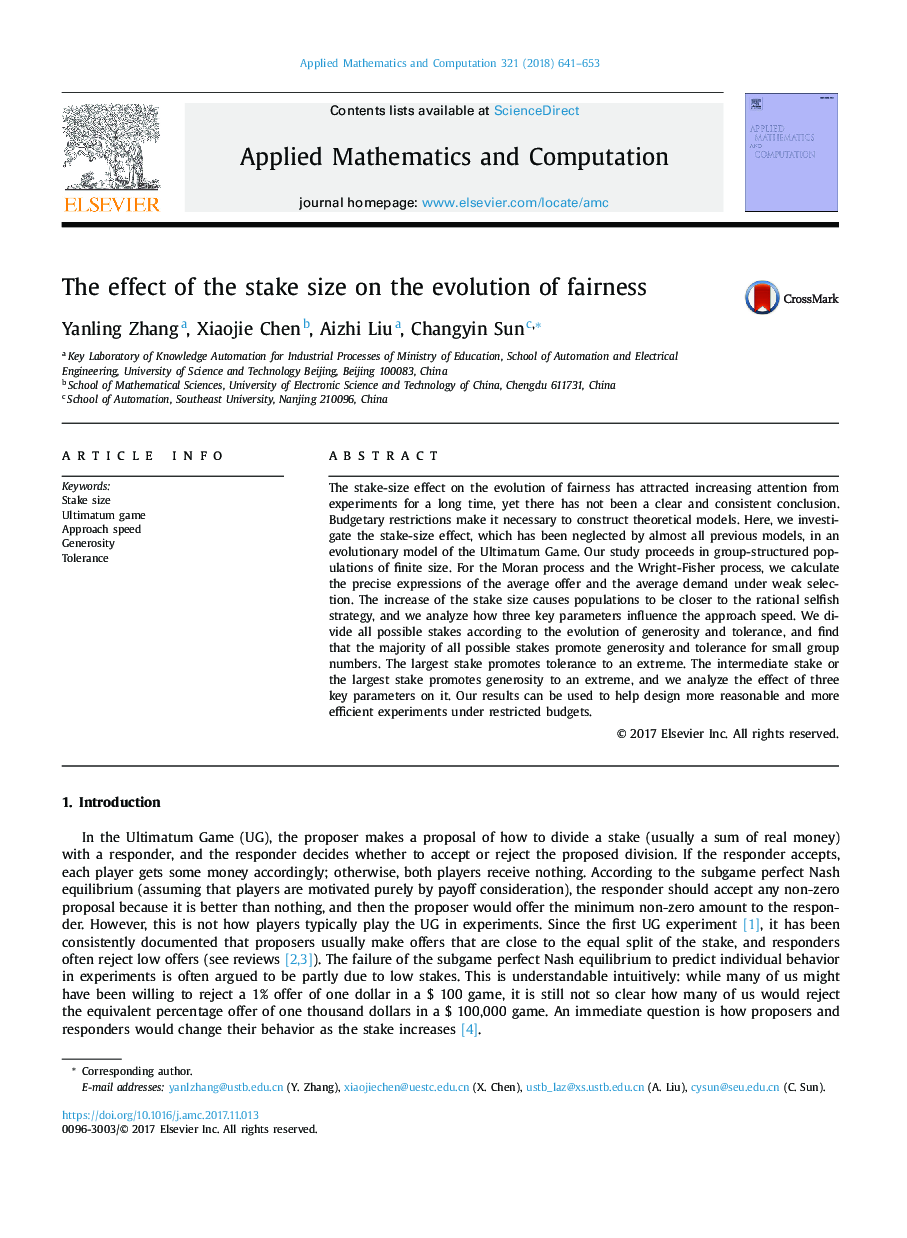| Article ID | Journal | Published Year | Pages | File Type |
|---|---|---|---|---|
| 8901372 | Applied Mathematics and Computation | 2018 | 13 Pages |
Abstract
The stake-size effect on the evolution of fairness has attracted increasing attention from experiments for a long time, yet there has not been a clear and consistent conclusion. Budgetary restrictions make it necessary to construct theoretical models. Here, we investigate the stake-size effect, which has been neglected by almost all previous models, in an evolutionary model of the Ultimatum Game. Our study proceeds in group-structured populations of finite size. For the Moran process and the Wright-Fisher process, we calculate the precise expressions of the average offer and the average demand under weak selection. The increase of the stake size causes populations to be closer to the rational selfish strategy, and we analyze how three key parameters influence the approach speed. We divide all possible stakes according to the evolution of generosity and tolerance, and find that the majority of all possible stakes promote generosity and tolerance for small group numbers. The largest stake promotes tolerance to an extreme. The intermediate stake or the largest stake promotes generosity to an extreme, and we analyze the effect of three key parameters on it. Our results can be used to help design more reasonable and more efficient experiments under restricted budgets.
Related Topics
Physical Sciences and Engineering
Mathematics
Applied Mathematics
Authors
Yanling Zhang, Xiaojie Chen, Aizhi Liu, Changyin Sun,
